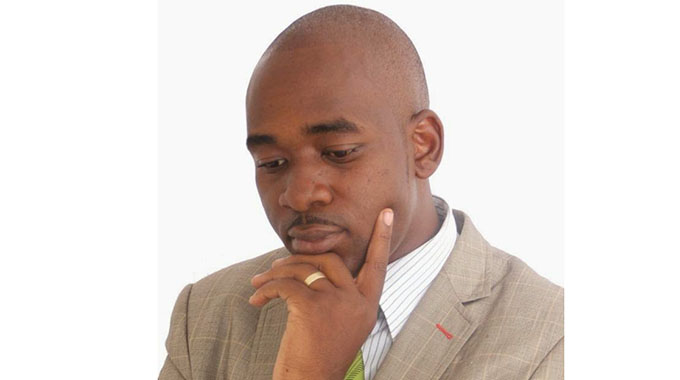MDC Alliance partners singing different tunes

Herald Reporter
Political analysts yesterday slammed MDC-T Alliance for selling voters opposing development ideologies at the same rally at Kondo in Chipinge on Saturday, describing the union as an alliance of “bodies not ideology”. At the rally, People’s Democratic Party (PDP) leader Mr Tendai Biti spoke of rural development while MDC-T leader Mr Nelson Chamisa spoke of the rural folk migrating from rural areas to look for jobs in the urban areas.
Said Mr Biti said: “The big programme that we have lined up for rural areas is that of rural development. It is disheartening that after 38 years of independence 60 percent of Zimbabweans are drinking water from wells, the same water source as animals.
“It is also disheartening that after 38 years of independence Zimbabweans are still practising open defecation. So, at the epicentre of our programme will be the agenda of rural development which will encompass rural electrification,” he said.
He said when Adv Chamisa is elected president of Zimbabwe, a serious programme of rural electrification, which will include solar power, will be launched.
When Mr Chamisa took to the podium he said: “Business should be seen to be open. We want to see supermarkets which are full of goods and people having money in their pockets. When we get into office, people will migrate from rural areas to work in urban areas.”
Mr Biti also showed that he still views employment in terms of white people when he said;
“Unopedza degree usina kubairwa chitikinyana chako nemurungu.” (After completing university education, a person never gets employed by a white person).
The analysts said the alliance was meant to dislodge Zanu-PF but never had any coherent poicies hence when Operation Restore Legacy was rolled out, their semblance of unity all but fizzled out, rendering the plot redundant.
Political analyst Mr Richard Mahomva said the MDC Alliance never sang from the same hymn sheet on matters of public policy and national development.
“Its birth was to topple the establishment against the background which was quite torrid in nature. When the 17th of November came, it really reconfigured its functions by circumstances and thus invalidating its relevance in the Zimbabwean landscape. Now, it is just an incoherent entity in its approach to challenge the status quo,” he said.
“It was born to fight an era that is dead. Now that the era is gone, it is no longer relevant and whatever was justifying its existence no longer makes sense in the present context which is currently transformed and less polarised. We are now in the era that is promising in terms of democracy, peace, tolerance and other freedoms.”
University of Zimbabwe lecturer Mr Wellington Gadzikwa said in terms of political communication, the alliance was trying to sell everything they can sell.
“There are a lot of contradictions that someone is talking about rural development while others want people to relocate for city jobs. There could be different perceptions on how to develop the country among the alliance members, so there is no common understanding on how to approach things among the alliance members,” he said.
“It is an alliance of people with ideas which are not the same. They do not have a position. It is a marriage of convenience. They want to get power but they do not know what to do with it.”
Political analyst Mr Goodwine Mureriwa also took a swipe at the alliance leaders saying the duo of Messrs Chamisa and Biti were captives of the West. “They were groomed and funded from student activists to opposition leaders . . . When they are hosted by these imperialists, they envy Western values and standards,” he said.
“Naivety tells them Zimbabwe can be (a First World country) overnight. Impossible! Do they expect Zimbabwe to enslave, colonise and loot resources from the West as happened to us? No, we are no aggressors. We believe in hard work and sovereign ownership of our God-given resources.”
“We grow slowly but surely. We re-engage on the basis of liberation ideals and equality as enshrined in the UN Charter.”









Comments